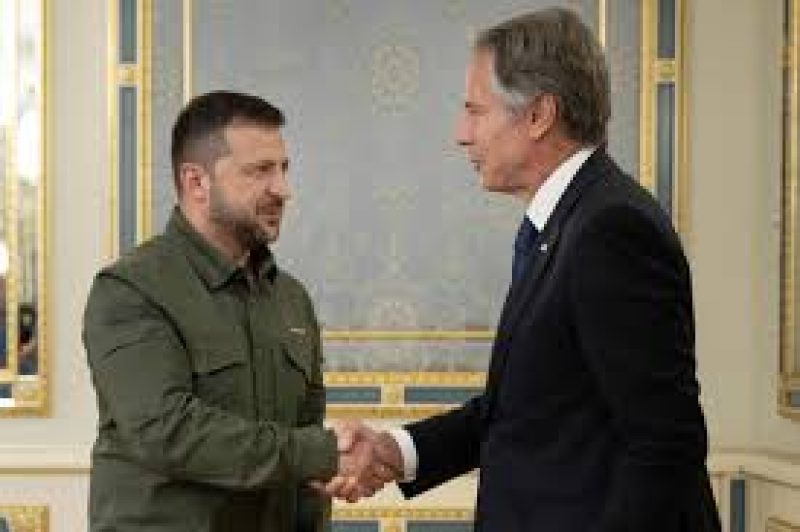- Middle East War Puts Bangladesh Jobs at Risk |
- Starmer criticises Trump, defends UK position not to allow use of its bases |
- Iran War: Nuke watchdog urges restraint amid ongoing strikes |
- 80pc tube wells in Chhatak run dry; water crisis acute |
- Advance Eid train ticket sale begins |
US plans $1 billion aid package for Ukraine - Officials

The United States is planning to send a military aid package valued at up to $1 billion immediately after a supplemental funding bill under discussion in the Senate is passed and signed into law, two defense officials tell VOA.
The package drawn from U.S. military stockpiles will include ammunition for HIMARS and 155 mm rounds, along with Bradley infantry fighting vehicles, Javelins, Stingers and other critical needs, added the officials, who spoke to VOA on condition of anonymity to discuss security plans.
A senior White House official said President Joe Biden ordered the Department of Defense to deliver military equipment to Poland and Germany "a few weeks ago" in anticipation of passage of a supplemental aid bill to ensure immediate delivery once he signs the bill into law.
Pentagon spokesman Major General Pat Ryder said the U.S. would be able to deliver the anticipated aid "within days." He added the package will likely include air defense and artillery capabilities.
On Saturday, the U.S. House of Representatives passed a four-part, $95 billion foreign aid package for Ukraine, Israel and Taiwan after months of deadlock, reports VOA.
House Speaker Mike Johnson, a Republican, structured the bills so they could be combined into one after each bill was approved, to prevent opposition to any one piece from derailing the entire deal. Johnson had declined to bring the aid packages to the floor for a vote for months.
The Senate initially passed a supplemental aid bill in February, as Ukraine said ammunition shortages were causing its forces to pull back in areas.
The newly passed House legislation includes $61 billion for Kyiv's defense against Moscow's invasion, as well as $26 billion for Israel and humanitarian aid for civilians in conflict zones, including Gaza, and $8 billion for the Indo-Pacific region.
Biden in a statement Saturday urged the Senate to "quickly send this package to my desk so that I can sign it into law."
The United States may send additional military advisers to its embassy in Kyiv to advise and support the Ukrainian government and military, Pentagon spokesperson Ryder told VOA on Monday.
The troops would serve in a noncombat role to augment the Office of Defense Cooperation (ODC) at the embassy, Ryder said.
Two U.S. defense officials, speaking to VOA on the condition of anonymity to discuss plans that were not finalized, said the number of advisers was "small" and could fluctuate slightly based on embassy requirements. A source familiar with the considerations said the number of troops was "fewer than two dozen."
The troops could advise on matters such as logistics, maintenance, communications and sustainment, the defense officials added.
Per the Pentagon, the ODC performs a variety of advisory and support missions and is embedded within the U.S. Embassy under the chief of the mission.

